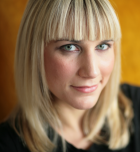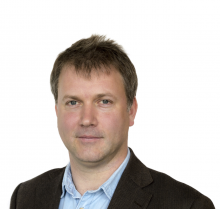| Please visit our ***NEW*** OBF/BOSC website: https://www.open-bio.org/ |
-
Difference between revisions of "BOSC 2015 Keynote Speakers"
(→Holly Bik) |
(→Ewan Birney) |
||
| Line 21: | Line 21: | ||
Dr Birney played a vital role in annotating the genome sequences of the human, mouse, chicken and several other organisms; this work has had a profound impact on our understanding of genomic biology. He led the analysis group for the ENCODE project, which is defining functional elements in the human genome. Ewan’s main areas of research include functional genomics, assembly algorithms, statistical methods to analyse genomic information (in particular information associated with individual differences) and compression of sequence information. | Dr Birney played a vital role in annotating the genome sequences of the human, mouse, chicken and several other organisms; this work has had a profound impact on our understanding of genomic biology. He led the analysis group for the ENCODE project, which is defining functional elements in the human genome. Ewan’s main areas of research include functional genomics, assembly algorithms, statistical methods to analyse genomic information (in particular information associated with individual differences) and compression of sequence information. | ||
| − | Dr Birney | + | Dr Birney has received a number of prestigious awards including the 2003 Francis Crick Award from the Royal Society, the 2005 Overton Prize from the International Society for Computational Biology and the 2005 Benjamin Franklin Award for contributions in Open Source Bioinformatics. He was elected a Fellow of the Royal Society in 2014. |
Dr Birney's talk topic will be announced soon. | Dr Birney's talk topic will be announced soon. | ||
Revision as of 20:33, 24 March 2015
BOSC 2015 is pleased to announce the following keynote speakers:
Holly Bik
Holly Bik is a Birmingham Fellow (assistant professor) in the School of Biosciences at the University of Birmingham, UK. She obtained her Ph.D. in molecular phylogenetics at the University of Southampton, UK (working in conjunction with the Natural History Museum, London), followed by subsequent postdoctoral appointments at the Hubbard Center for Genome Studies at the University of New Hampshire and the UC Davis Genome Center. Her research uses high-throughput environmental sequencing approaches (rRNA surveys, metagenomics) to explore biodiversity and biogeographic patterns in in microbial eukaryote assemblages, with an emphasis on nematodes in marine sediments. Through active collaborations with computer scientists and participation in software development projects, her long-term research aims to address existing bottlenecks encountered in –Omic analyses focused on microbial eukaryotes.
Dr. Bik's keynote talk topic is "Bioinformatics: Still a scary world for biologists".
Many biological disciplines remain staunchly traditional, where high-throughput DNA sequencing and bioinformatics have not yet become widely adopted. In this talk, I'll discuss the ongoing challenges and barriers facing biologists in the age of 'Omics, based on my experiences in transitioning from nematode taxonomy to computational biology research.
Ewan Birney
Dr Birney is Joint Associate Director of EMBL-EBI, as well as Interim Head of the Centre for Therapeutic Target Validation. Together with Dr Rolf Apweiler, he has strategic responsibility and oversight for bioinformatics services at EMBL-EBI.
Dr Birney played a vital role in annotating the genome sequences of the human, mouse, chicken and several other organisms; this work has had a profound impact on our understanding of genomic biology. He led the analysis group for the ENCODE project, which is defining functional elements in the human genome. Ewan’s main areas of research include functional genomics, assembly algorithms, statistical methods to analyse genomic information (in particular information associated with individual differences) and compression of sequence information.
Dr Birney has received a number of prestigious awards including the 2003 Francis Crick Award from the Royal Society, the 2005 Overton Prize from the International Society for Computational Biology and the 2005 Benjamin Franklin Award for contributions in Open Source Bioinformatics. He was elected a Fellow of the Royal Society in 2014.
Dr Birney's talk topic will be announced soon.

